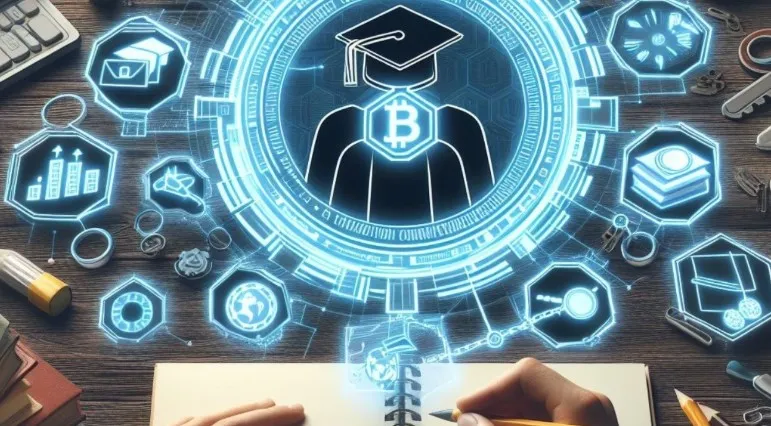TON Blockchain in education: how smart contracts facilitate credential verification
Introduction
Education systems around the world are increasingly exploring innovations that safeguard academic records and streamline verification. By integrating a decentralized network, schools and universities can reliably authenticate documents in a fraction of the time previously required. This shift toward blockchain-based solutions represents a major leap in efficiency, sparing both students and institutions from outdated procedures.
Challenges in traditional credential verification systems
Traditional verification often depends on third-party agencies and manual reviews, which are slow and prone to error. Paper-based records may be lost, damaged, or forged, undermining trust in academic achievements. Because these methods offer limited oversight and can incur high operational costs, many institutions struggle to maintain data integrity and verify credentials swiftly.
Overview of how TON Blockchain addresses these challenges
By employing a decentralized ledger, TON Blockchain in education introduces secure record-keeping that is both tamper-resistant and transparent. Each credential is cryptographically signed and stored across multiple nodes, ensuring it cannot be falsified or altered once verified. This architecture provides a robust, digital safety net for academic data and reduces administrative complexities.
Smart contracts for credential verification
The power of Smart contracts for academic certificates lies in their automated execution. When a student completes the required coursework, a smart contract validates the achievement before issuing a digital certificate. This approach removes intermediaries and guarantees that each academic record correlates directly with the actual performance of the individual.
Explanation of how smart contracts automate validation processes
Once the preconditions for earning a credential are met, the smart contract is triggered to update the blockchain instantly. This system delivers significant benefits: it minimizes human involvement, lowers the risk of data manipulation, and accelerates the overall verification timeline. Combined with Decentralization in education, these smart contracts can handle large volumes of records without the bottlenecks found in conventional methods.
Benefits of using Blockchain for Secure and Tamper-Proof Academic Records
With blockchain’s immutability, the risk of unlawful modifications to student transcripts is nearly eliminated. Such Transparency and security in credential validation also help institutions confidently share records, as each credential’s authenticity can be verified with just a few clicks. This permanent, audit-ready trail fosters greater trust among employers, governments, and other educational entities.

Advantages of TON in Education
TON’s network offers scalability and user-friendly interfaces, simplifying integration with existing institutional databases. Beyond reducing manual tasks, this system enables seamless credential sharing across borders, accelerating processes for international admissions and job applications. By diminishing administrative demands, institutions can dedicate more resources to academic excellence.
Transparency, Efficiency, and Reduced Costs for Credential Management
Through cryptographic proofs, blockchain-based systems prevent fraudulent activities while also cutting down operational expenses. The automation built into TON boosts efficiency, allowing schools to allocate time to more value-driven tasks. Such streamlined operations underscore TON’s role in combating fake degrees, as every academic achievement is anchored to verifiable data.
How TON Combats Fraud in Academic and Professional Certifications
Fake diplomas can severely damage an institution’s reputation. With TON, each certificate has a unique identifier that traces back to its issuing authority. This digital watermark is virtually impossible to replicate or counterfeit, offering immediate validation of any credential’s legitimacy. Employers gain enhanced confidence in hiring decisions, and universities protect the credibility of their awards.
Real-World Applications
Academic bodies eager to adopt modern tools have found success with Real-world applications of TON in education. By using TON-based solutions, some universities now issue degrees as verified digital tokens. Graduates benefit from immediate proof of their qualifications, and organizations receive an efficient method to confirm candidate expertise.
Examples of Universities and Organizations Using TON for Credential Verification
Early-adopter institutions report quicker verification workflows and higher levels of trust from corporate recruiters. Alumni enjoy seamless access to their records, especially when applying for international positions or further study. Such widespread acceptance illustrates the Benefits of blockchain for universities and employers, highlighting faster turnarounds and more reliable hiring.

Conclusion
The ability to generate and verify credentials in a tamper-proof environment marks a turning point for educational systems worldwide. TON’s technology embodies a major leap forward, allowing students to hold internationally recognized and verifiable records, and granting institutions a straightforward way to maintain academic excellence. By fostering a reliable and streamlined process, TON strengthens the mutual trust between academic bodies, businesses, and learners themselves.
The Transformative Role of TON in Modernizing the Education Sector Through Blockchain
In an era where information travels at unprecedented speed, Decentralization in education meets the growing need for secure and agile credential verification. TON not only makes academic records more transparent but also significantly curtails the time and resources needed to authenticate them. As a result, Credential verification with blockchain evolves into a seamless process, eliminating many of the hurdles associated with traditional systems. By embracing TON Blockchain in education, institutions can confidently enter a new phase of innovation—one where Smart contracts for academic certificates redefine trust, efficiency, and validity in the modern academic landscape.